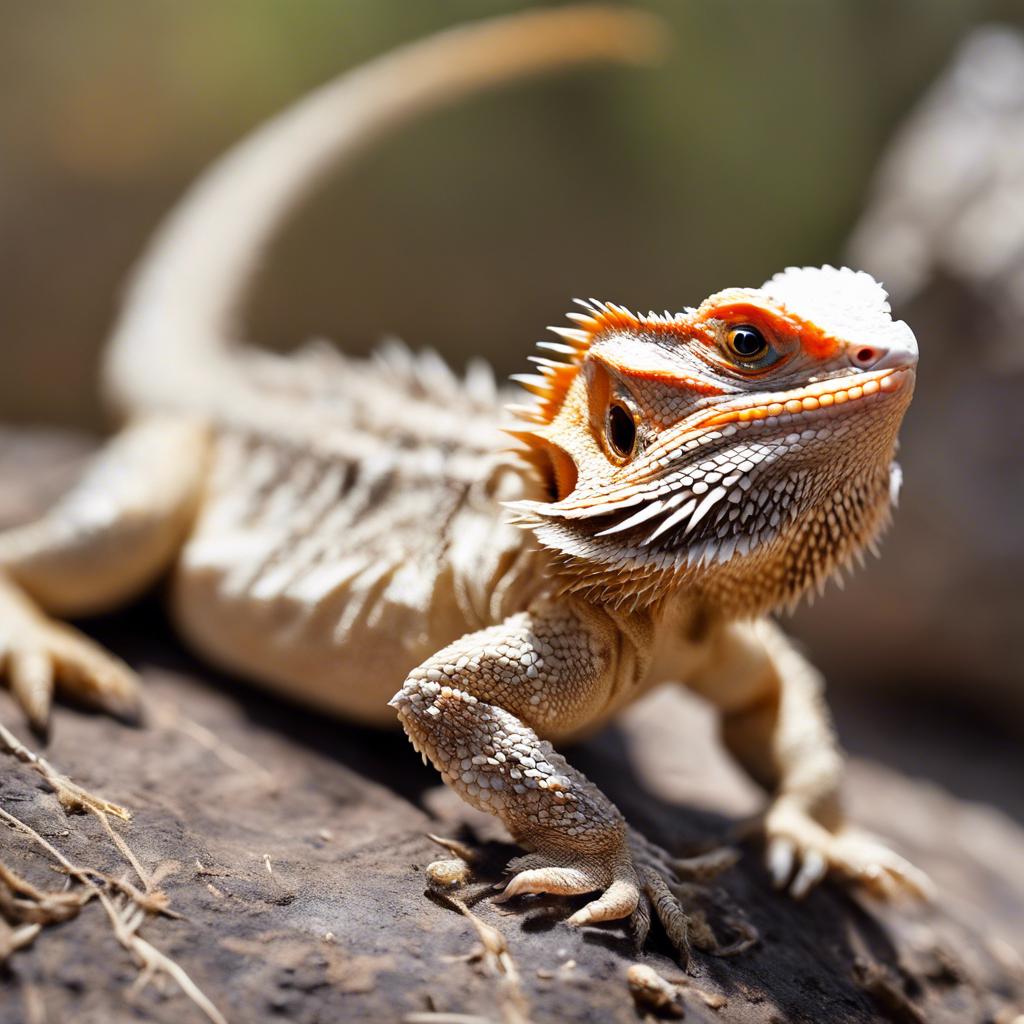Bearded dragons are fascinating reptiles that have become popular pets in recent years. These unique creatures are known for their distinctive appearance, with spiky scales and a beard-like flap of skin under their chin. One common question that many bearded dragon owners have is whether or not their pets can eat raisins. In this blog post, we will explore the topic of bearded dragon diets and specifically address the question of whether or not they can safely consume raisins.
Key Takeaways
- Bearded dragons are popular pets that require a balanced diet and proper care.
- Raisins are not recommended as a regular part of a bearded dragon's diet due to their high sugar content.
- Raisins do contain some nutritional value, including fiber and vitamins, but they should only be given as an occasional treat.
- Feeding bearded dragons too many raisins can lead to health problems such as obesity and digestive issues.
- Safe treats for bearded dragons include leafy greens, fruits, and insects, but they should be given in moderation as part of a balanced diet.
- Overall, it is important to carefully consider the nutritional value and potential risks of any food before feeding it to a bearded dragon.
What are bearded dragons?
Bearded dragons, also known as Pogona vitticeps, are native to the arid regions of Australia. They are diurnal reptiles, meaning they are active during the day and sleep at night. In the wild, bearded dragons primarily eat insects, such as crickets and mealworms, as well as vegetation like flowers and leaves. They are omnivorous creatures, meaning they can consume both animal and plant matter.
As pets, bearded dragons require a carefully balanced diet to ensure their health and well-being. In addition to insects, they should also be provided with a variety of vegetables and fruits to meet their nutritional needs. It is important to mimic their natural diet as closely as possible to ensure they receive all the necessary nutrients.
Can bearded dragons eat raisins?
The answer to the question of whether or not bearded dragons can eat raisins is yes, they can. Raisins are not toxic to these reptiles and can be safely consumed in moderation. However, it is important to note that raisins should not be a staple in a bearded dragon's diet.
Nutritional value of raisins
Raisins are dried grapes and contain a variety of vitamins and minerals that can benefit bearded dragons. They are a good source of fiber, potassium, iron, and certain B vitamins. However, it is important to note that raisins are also high in sugar, which can be problematic if consumed in excess.
Risks of feeding raisins to bearded dragons
While raisins are not toxic to bearded dragons, there are some risks associated with feeding them to these reptiles. One of the main concerns is the high sugar content of raisins. Bearded dragons have a low tolerance for sugar and consuming too many raisins can lead to obesity and other health problems.
Another risk is that raisins can cause digestive issues if not properly prepared. It is important to thoroughly wash and soak raisins before feeding them to your bearded dragon to ensure they are soft and easy to digest.
Bearded dragon diet

A healthy bearded dragon diet should consist of a variety of protein, vegetables, and fruits. Insects such as crickets, mealworms, and dubia roaches should make up the majority of their protein intake. These insects should be gut-loaded, meaning they are fed a nutritious diet before being fed to the bearded dragon.
In addition to insects, bearded dragons should also be provided with a variety of vegetables and fruits. Leafy greens such as kale, collard greens, and dandelion greens are excellent choices. Fruits such as blueberries, strawberries, and small amounts of melon can also be offered as treats.
Bearded dragon care
Proper care is essential for the health and well-being of bearded dragons. These reptiles require specific temperature and lighting conditions to thrive. They need a basking spot with a temperature of around 95-105 degrees Fahrenheit (35-40 degrees Celsius) and a cooler area with a temperature of around 75-85 degrees Fahrenheit (24-29 degrees Celsius). UVB lighting is also crucial for their overall health.
Bearded dragons also require a spacious enclosure with plenty of hiding spots and climbing opportunities. The enclosure should be kept clean and free of any potential hazards. Regular veterinary check-ups are also important to ensure their health and to catch any potential issues early on.
Signs of illness in bearded dragons
It is important for bearded dragon owners to be aware of the signs of illness in their pets. Common signs of illness in these reptiles include lethargy, loss of appetite, abnormal behavior, changes in stool consistency, and respiratory issues. If you notice any of these signs or if you have any concerns about your bearded dragon's health, it is important to seek veterinary care as soon as possible.
Other safe treats for bearded dragons
While raisins can be offered as an occasional treat, there are other safe options that can be included in a bearded dragon's diet. Blueberries and strawberries are excellent choices as they are low in sugar and high in antioxidants. Small amounts of cooked meat, such as chicken or turkey, can also be offered as a treat.
It is important to remember that treats should only make up a small portion of a bearded dragon's diet. The majority of their diet should consist of protein and vegetables to ensure they receive all the necessary nutrients.
Conclusion and summary of key points
In conclusion, bearded dragons can safely eat raisins in moderation. Raisins are not toxic to these reptiles but should not be a staple in their diet due to their high sugar content. It is important to provide a balanced and varied diet for bearded dragons, including a variety of protein, vegetables, and fruits.
Proper care is essential for the health and well-being of these reptiles. This includes providing the correct temperature and lighting conditions, as well as a spacious and clean enclosure. It is also important to be aware of the signs of illness in bearded dragons and to seek veterinary care if any concerns arise.
While raisins can be offered as a treat, there are other safe options that can be included in a bearded dragon's diet. Blueberries, strawberries, and small amounts of cooked meat are all excellent choices. Remember to provide treats in moderation and to prioritize a balanced and varied diet for your bearded dragon.
If you're wondering whether bearded dragons can have raisins, you may also be interested in learning about what other foods are safe or unsafe for these reptiles. Check out this informative article on Reptile Wizard's website: “Can Bearded Dragons Eat Black Olives?” It provides valuable insights into the dietary preferences and restrictions of bearded dragons, helping you make informed decisions about their nutrition.
FAQs
What are bearded dragons?
Bearded dragons are a type of lizard that are commonly kept as pets. They are native to Australia and are known for their distinctive appearance, which includes a spiky beard-like projection under their chin.
Can bearded dragons eat raisins?
No, bearded dragons should not be fed raisins. Raisins are high in sugar and can cause digestive issues for bearded dragons. They also do not provide any nutritional value for these lizards.
What should bearded dragons eat?
Bearded dragons should be fed a diet that consists primarily of insects, such as crickets and mealworms, as well as leafy greens and vegetables. It is important to provide a balanced diet that meets their nutritional needs.
Can bearded dragons eat fruit?
Some fruits can be fed to bearded dragons in moderation, such as strawberries and blueberries. However, fruits should not make up a large part of their diet as they are high in sugar.
What are the risks of feeding bearded dragons raisins?
Feeding bearded dragons raisins can lead to digestive issues such as diarrhea and constipation. It can also cause a buildup of sugar in their system, which can lead to health problems over time. It is best to avoid feeding them raisins altogether.

